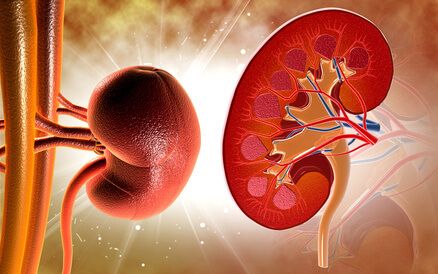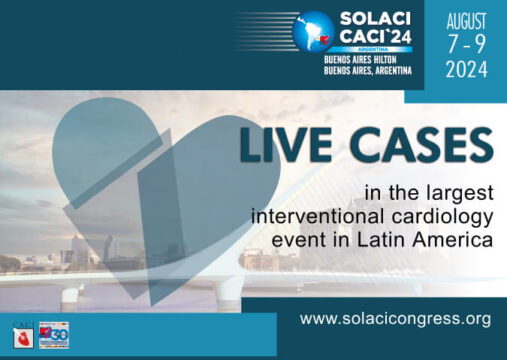Abbreviated dual antiplatelet therapy in patients at high risk for bleeding and acute myocardial infarction.
Patients with acute coronary syndrome (ACS) who undergo stent placement (percutaneous coronary intervention, PCI) conventionally require at least 12 months of dual antiplatelet therapy (DAPT) to reduce ischemic events.

Patients with ACS who are also at high risk for bleeding present a complex scenario, since their risk increases bidirectionally (early discontinuation of an antiplatelet agent generates ischemic risk while prolonged or standard treatment causes bleeding risk). In these cases, both American and European guidelines recommend abbreviated DAPT for 3-6 months (recommendation level II a or b).
This study by Smiths et al. corresponds to a subanalysis of the MASTER-DAPT, where emphasis was placed on a subgroup of patients at risk for bleeding and recent ACS (within 11 months of randomization).
High bleeding risk was defined as patients who were anticoagulated, with recent non-access-related bleeding, any bleeding that required hospitalization, ≥75 years, predisposition to bleeding, documented anemia or PRECISE-DAPT ≥25. These patients had undergone PCI with the Ultimaster drug-eluting stent and were event-free within 1 month of post-intervention DAPT.
Patients with 30-to-44-day DAPT after PCI were randomized 1:1 to abbreviated (discontinuation of DAPT immediately after randomization) vs. non-abbreviated (DAPT ≥3 months after stenting and continuation of SAPT at 1 year) therapy. In this prespecified subgroup, events were analyzed for a population with prior ACS and without prior ACS (history of non-ST-elevation [NSTEACS] AMI [65.1%] and with ST-elevation [29.9%] within 12 months).
Read also: Mitral Valve Surgery after Edge-to-Edge Repair.
The outcomes analyzed were net adverse clinical events (NACE, a composite of all-cause mortality, acute myocardial infarction [AMI], stroke, and the presence of BARC 3 or 5 bleeding), major adverse cardiac and cerebral events (MACCE, a composite of all-cause mortality, AMI, or stroke), and major bleeding according to BARC 2, 3, or 5. Secondary events were the individual items of the primary outcomes.
From February 2017 to December 2019, out of the patients in the abbreviated branch, 914 had an AMI in the previous 12 months and 1381 did not experience ACS. In the non-abbreviated branch, 866 patients had a recent AMI and 1418 did not. The mean age was 76±8.7 years, 33% of patients were diabetic, and 36.4% of subjects were on anticoagulant treatment. The indication for intervention was ACS in 48.3% of patients (25.2% NSTEACS and 11.7% STEACS).
In patients with previous AMI (≤12 months) the NACE rate was 8.9% in the abbreviated therapy group vs. 10.6% in the non-abbreviated therapy group (hazard ratio [HR]: 0.86; 95% confidence interval [CI]: 0.62-1.19; p = 0.36). MACCE did not differ between both groups (HR: 0.86; 95% CI: 0.40-0.93; p = 0.022). BARC 2, 3, and 5 bleeding was lower with abbreviated therapy (HR: 0.65; 95% CI: 0.46-0.91; p = 0.01), at the expense of BARC 2.
In patients without previous AMI, clinical events at 12 months did not show significant changes, with similar NACE rates between abbreviated therapy and standard therapy (HR: 1.03; 95% CI: 0.77-1.38; p = 0.85); MACCE rates were also similar, with no significant differences (HR: 1.13; 95% CI: 0.80-1.59; p = 0.48).
Conclusions
The main findings in the predefined subgroup of the MASTER-DAPT study are the following: compared with a non-abbreviated antiplatelet therapy, decreasing DAPT time in this population was not associated with a greater amount of ischemic or net events, both in those with or without recent ACS.
Also, interrupting DAPT a month after the intervention significantly reduced clinically significant bleeding.

Dr. Omar Tupayachi.
Member of the Editorial Board of SOLACI.org.
Original Title: Abbreviated Antiplatelet Therapy After Coronary Stenting in Patients With Myocardial Infarction at High Bleeding Risk.
Reference: Smits PC, Frigoli E, Vranckx P, et al. Abbreviated Antiplatelet Therapy After Coronary Stenting in Patients With Myocardial Infarction at High Bleeding Risk. J Am Coll Cardiol. 2022;80(13):1220-1237. doi:10.1016/j.jacc.2022.07.016.
Subscribe to our weekly newsletter
Get the latest scientific articles on interventional cardiology





